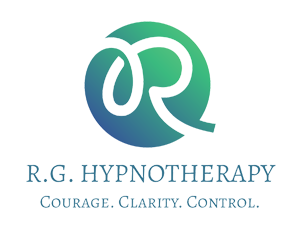Menopause marks a transformative phase in a woman’s life, signaling the end of reproductive years and the onset of a new chapter. While this natural transition is a shared experience, it comes with its unique set of challenges that can impact a woman’s physical and mental health. In this comprehensive guide, we will explore how to stay healthy during menopause, shedding light on the challenges women may face and offering practical strategies to navigate this transformative journey with grace and resilience.
Understanding Menopause:
1. Embracing the Physical Changes:
Menopause is characterized by the cessation of menstruation, typically occurring in the late 40s or early 50s. The decline in estrogen levels during this time triggers a range of physical changes, including hot flashes, night sweats, changes in skin and hair, and shifts in body composition. Embracing these changes with a positive mindset is the first step toward holistic wellbeing during menopause.
A. Prioritizing Bone Health:
Declining estrogen levels also impact bone density, increasing the risk of osteoporosis. Adequate calcium and vitamin D intake, along with weight-bearing exercises, are crucial for maintaining bone health. Regular bone density screenings can help detect potential issues early.
B. Managing Weight Changes:
Menopause often brings about changes in metabolism and fat distribution, making weight management challenging. Engaging in regular physical activity, including both cardiovascular exercises and strength training, can help maintain a healthy weight and improve overall body composition.
Challenges during Menopause:
1. Hormonal Fluctuations and Mental Health:
The hormonal fluctuations during menopause can significantly impact mental health, leading to mood swings, anxiety, and even depression. Recognizing and addressing these challenges is essential for overall wellbeing.
A. Seeking Emotional Support:
Menopause can be an emotional rollercoaster, and seeking support from friends, family, or a mental health professional can provide a crucial outlet for expressing feelings and receiving guidance.
B. Mind-Body Practices:
Incorporating mind-body practices such as meditation, yoga, and deep-breathing exercises can help manage stress and promote emotional balance during menopause.
2. Sleep Disruptions:
Many women experience disruptions in sleep patterns during menopause, often due to night sweats and hormonal fluctuations. Quality sleep is essential for overall health, and addressing sleep issues is crucial.
A. Creating a Sleep-Friendly Environment:
Establishing a bedtime routine, maintaining a cool and dark sleep environment, and limiting caffeine intake can contribute to better sleep quality.
B. Seeking Professional Guidance:
Persistent sleep issues may require consultation with a healthcare professional. Hormone replacement therapy (HRT) or other medical interventions may be recommended in some cases.
Strategies for Staying Healthy during Menopause:
1. Balanced Nutrition:
A well-balanced diet is foundational for navigating the challenges of menopause. Nutrient-rich foods can help manage weight, support bone health, and alleviate some of the symptoms associated with hormonal changes.
A. Phytoestrogen-Rich Foods:
Including foods rich in phytoestrogens, such as soy, flaxseeds, and legumes, may help alleviate some menopausal symptoms by mimicking the effects of estrogen in the body.
B. Omega-3 Fatty Acids:
Omega-3 fatty acids, found in fatty fish, flaxseeds, and walnuts, have anti-inflammatory properties that may help manage joint pain and support heart health.
2. Regular Exercise:
Physical activity is a cornerstone of overall wellbeing during menopause. Regular exercise has numerous benefits, including weight management, improved mood, and enhanced cardiovascular health.
A. Cardiovascular Exercise:
Engaging in aerobic exercises like brisk walking, jogging, or swimming can help maintain heart health and manage weight.
B. Strength Training:
Incorporating strength training exercises can improve muscle tone, bone density, and metabolism, addressing some of the physical changes associated with menopause.
3. Holistic Approaches:
Taking a holistic approach to health during menopause involves considering various aspects of wellbeing, including mental, emotional, and physical health.
A. Acupuncture and Herbal Remedies:
Some women find relief from menopausal symptoms through acupuncture or herbal remedies. Consultation with a qualified practitioner can help explore these options.
B. Bio-Identical Hormone Therapy (BHRT):
BHRT, a form of hormone replacement therapy using hormones that are chemically identical to those produced by the body, is an option for women experiencing severe symptoms. However, it should be approached with caution and under the guidance of a healthcare professional.
C. Hypnotherapy:
Hypnotherapy can help you to ease the physical and mental symptoms of menopause by directing the subconscious to change it’s “operating program” in regards to menopause.
4. Regular Health Check-ups:
Regular health check-ups are essential during menopause to monitor changes in health and address any emerging concerns promptly.
A. Comprehensive Hormone Panels:
Periodic hormone panels can help healthcare providers assess hormonal levels and tailor interventions based on individual needs.
B. Bone Density Scans:
Bone density scans are recommended to monitor bone health and detect early signs of osteoporosis.
Conclusion:
Menopause is a transformative journey that, with the right approach, can be navigated with grace and resilience. Understanding the physical changes, addressing mental health challenges, and adopting proactive strategies for staying healthy are key elements of this journey. By embracing a holistic approach that encompasses nutrition, exercise, and mental wellbeing, women can not only weather the challenges of menopause but emerge from this phase with a renewed sense of empowerment, self-love, and overall vitality. It’s a celebration of a new chapter—one that is marked by wisdom, strength, and a commitment to lifelong wellbeing.





